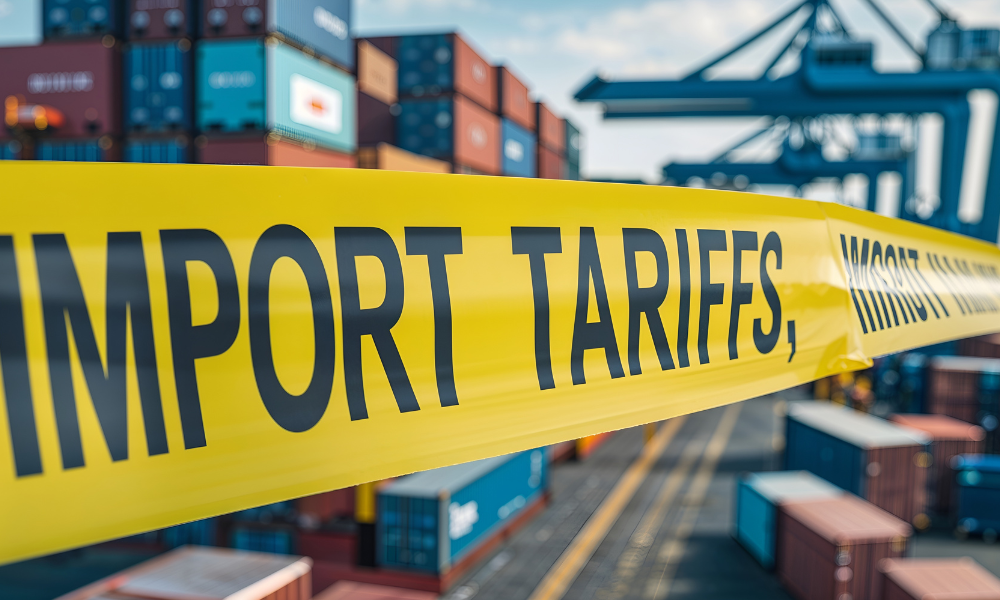Canada offers exemptions and aid as US duties disrupt North American supply chains and trade ties

Canada has introduced new measures on Tuesday to mitigate the impact of US auto tariffs, as US President Donald Trump suggested another pause may be coming.
According to BNN Bloomberg, Finance Minister François-Philippe Champagne announced that companies manufacturing vehicles in Canada will be allowed to import a limited number of US-assembled, CUSMA-compliant vehicles without facing retaliatory tariffs.
That limit will decrease if companies reduce Canadian production or investment.
Champagne also confirmed a six-month tariff holiday for Canadian businesses affected by the trade dispute.
The temporary exemption applies to goods imported from the US that are used in Canadian manufacturing, processing, food and beverage packaging, and sectors such as health care, public safety, public health and national security.
Champagne added that the large enterprise tariff loan facility, first announced in March, is now accepting applications.
Trump, who imposed 25 percent tariffs on all automobile imports to the US on April 3, told reporters Monday that he is considering a new delay to allow companies time to adapt.
As reported by The Canadian Press, Trump said, “I’m looking at something to help some of the car companies where they are switching to parts that were made in Canada, Mexico and other places. And they need a little bit of time because they are going to make them here. But they need a little bit of time.”
Despite a partial carve-out for vehicles built under the Canada-US-Mexico Agreement (CUSMA), a White House official confirmed those cars are still subject to duties until a system is created to measure the American content of each vehicle.
Once that system is operational, only non-American parts will be subject to tariffs. However, duties on auto part imports to the US are scheduled to take effect no later than May 3.
Trump’s shifting position has added to the broader instability in North American markets.
According to BNN Bloomberg, Champagne said he does not believe the May 3 auto parts tariffs will proceed.
Honda Canada denied reports of a production shift, stating Tuesday its Alliston, Ontario facility will continue operating at full capacity.
Prime Minister Mark Carney, speaking Tuesday in Saint-Eustache, Quebec, said that the North American automobile sector is one of the most integrated manufacturing sectors globally.
He said the Canadian-US auto sector, in particular, is deeply connected, adding that “President Trump’s tariffs are an attempt in some degree to pull apart that integration and the benefits that come from that integration.”
Political leaders across party lines also addressed the tariff impact.
Conservative Leader Pierre Poilievre said Tuesday in Montreal that “Trump deserves nothing but condemnation for the unfair targeting of Canada.”
NDP Leader Jagmeet Singh, at a separate campaign stop, said Canada must “make sure that we can strengthen our automobile sector” and push for removal of the tariffs.
The Canadian Press reported that Trump had earlier paused fentanyl-related tariffs on Canada and Mexico in February after discussions with carmakers, including Ford, General Motors and Stellantis, which had been lobbying the administration for weeks.
The automotive sector has been especially vulnerable because of its integrated supply chain, with vehicles crossing borders multiple times before completion.
BNN Bloomberg noted that the Canada-US auto relationship began with the 1965 Auto Pact, later expanded under NAFTA, and strengthened through CUSMA during Trump’s first administration.
Trump’s global trade policy has seen multiple reversals.
According to The Canadian Press, the president implemented a 10 percent universal import tariff and introduced sector-specific duties on aluminum, steel and automobiles.
Some electronics received temporary exemptions, while he suggested future tariffs on pharmaceuticals, lumber and semiconductors.
Trump said, “I don’t change my mind, but I’m flexible.”
White House Press Secretary Karoline Leavitt, speaking Tuesday, said Trump “has flexibility” but did not provide additional details.
She added that the president “maintains his position” and stated, “The United States has been subsidizing Canada’s national defence and he believes Canadians would benefit greatly from becoming the 51st state.”
The tariffs have caused concern in global markets. BNN Bloomberg reported that a Leger poll conducted from April 11 to 13 found 78 percent of Canadians were worried about stock market volatility linked to tariffs.
The same poll showed that 87 percent believed the new duties would affect their personal finances, compared to 78 percent of Americans. The online survey included 1,630 Canadian and 1,007 American adults and did not carry a margin of error.
According to Reuters, Barclays downgraded the US autos and mobility sector from “neutral” to “negative,” citing earnings pressure and investment slowdowns due to Trump’s tariffs.
Analyst Dan Levy said, “Auto tariffs are seemingly here to stay, and valuations are seemingly not pricing in full tariff risk.”
Reuters also noted that Barclays downgraded General Motors, citing its large share of vehicles assembled outside the US, including EVs made in Mexico.
Ford received a more favourable assessment due to its higher proportion of US-based assembly.
Auto tech firms such as Aptiv, Mobileye Global, and Visteon also received downgrades, with Barclays warning automakers could delay technology adoption over pricing concerns.
According to The Canadian Press, Trump escalated his trade war with China by imposing 145 percent tariffs on Chinese imports. Beijing responded with 125 percent retaliatory tariffs.
The US also continues to apply 25 percent tariffs on steel and aluminum.



